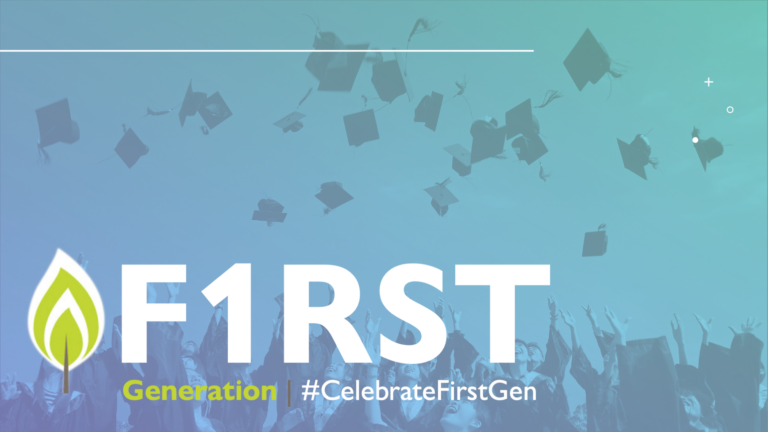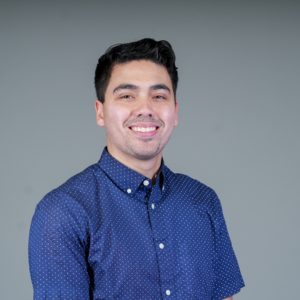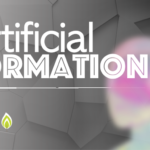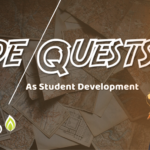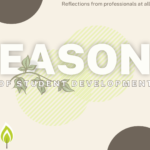![]() This content is brought to you by the Association for Christians in Student Development (ACSD), a volunteer membership organization committed to equipping and challenging faithful professionals to infuse their Christian faith into student development practice and scholarship. Thoughtful content such as this is made possible by volunteer contributions and the financial support of membership dues. Interested in becoming a member for more awesome content just like this? Join today by clicking here!
This content is brought to you by the Association for Christians in Student Development (ACSD), a volunteer membership organization committed to equipping and challenging faithful professionals to infuse their Christian faith into student development practice and scholarship. Thoughtful content such as this is made possible by volunteer contributions and the financial support of membership dues. Interested in becoming a member for more awesome content just like this? Join today by clicking here!
What does it mean to be a First-Generation student? This was the title of the presentation I co-presented to a group of student peer advisors in mid-September as our campus approached week four of the current academic year. At the end of the presentation, one of the students, surprised by the percentage of the First-Generation student population on our campus at Hope College, asked a follow-up question: “With this percentage of First-Generation students on campus, are the numbers increasing nationwide?” Great question.
Let’s dive into it.
According to FirstGen Forward (established in 2017 as an initiative of NASPA), a 2023 study reported that during the 2019-20 academic year, 54% of undergraduate students in the United States had parents (one or both) that did not earn a bachelor’s degree. Of the student population whose parents did not have a bachelor’s degree, 60% of these students were the first of their siblings to go to college. These numbers reflect institutions “eager to broaden and diversify their enrollments; to improve access, equity, and graduation rates; and to fulfill their educational and societal missions, colleges are seeking more-effective ways to help and support these students throughout their education” (The Chronicle of Higher Ed, n.d.). If the first generation population has increased at your institution, you might be asking how to best support these students. The following are several ideas, proposed particularly through the lens of the co-curricular experience on campus. These ideas are a mix of what’s worked on our campus at Hope College and new ideas that could spark new programs and initiatives on your campus to widen the support in First-Generation student support.
Shared Experiences: Building Belonging Together
1GenHope represents a student-led group on Hope’s campus, which focuses on organically creating spaces for First-Generation students to build belonging together. Programming is focused on three pillars: Connection, Information, and Community. In an attempt to meet these goals, I constantly asked myself: How can I create lanes for First-generation students to access departmental resources? (e.g., partner with the Global Engagement office to promote the value of studying abroad). Simultaneously, student leaders can focus on student-led programming and creating opportunities for belonging.
Our first 1Gen programming event was on January 24th, 2023 – a game night hosted by student leaders with three students in attendance. Fast forward 464 days and our last event of the year was the 1Gen End-of-Year Celebration. That night, we had 34 First-Gen students & two staff members. It was incredible to see such growth in less than two years. Our programming, from apple picking to hosting brunches during campus breaks, or celebrating our graduates at the end of the semester with our 1Gen stoles, has provided a variety of opportunities for students to feel supported and find belonging with students who might have similar life experiences. It’s even more special knowing it’s 100% student-led. Students create ideas, collaborate with peers, and find ways to support and build community together. This growth is a reminder that even the smallest beginnings can create lasting change.
It’s even more special knowing it’s 100% student-led. Students create ideas, collaborate with peers, and find ways to support and build community together. This growth is a reminder that even the smallest beginnings can create lasting change.
“First in the Family: Welcome!”:
The First in the Family orientation session at Hope College has been my favorite opportunity for engagement. The goal of this session is simple: invest and engage with the families of First-Generation students. During this session, we provide a breakdown of campus lingo and discuss topics like the “hidden curriculum” of college. General information is also presented to families to help answer questions such as campus student employment and how to apply for leadership roles, study abroad and opportunities off campus, essential dates within the academic calendar (e.g., registration, campus breaks, midterms), and more.
Lastly, we divide parents and students into two groups and have our First-generation student leaders lead a community-building activity with new students. At the same time, I facilitate a conversation with families regarding the types of support their students will receive on campus and how we might work together to ensure the success of their students. I leave ample space and time for any questions they may have. There is a common misconception that First-Generation students lack family support when the exact opposite is true. Family is, in most cases, the foundation of their success. As you initiate this conversation with a family of First-Generation students, continuing the conversation throughout the semester is pivotal. This could be through your alumni engagement office and/or a monthly newsletter sent to families of First-Generation students. Keep the conversation going; see the families as your partners and biggest encouragement to the students.
First-Generation College Celebration (FGCC):
FGCC is an annual celebration commemorating President Lyndon B. Johnson’s signing of the Higher Education Act of 1965 (FirstGen Forward). Since then, colleges and universities across the country have held celebrations on November 8th to signify and celebrate the identities and accomplishments of First-generation students on their campuses. How can you do this well?
NASPA’s FirstGen Forward provides us with ten ways to celebrate your First-Generation students on November 8th. Here are a few highlights:
- First-Gen Alumni Reception. Host a notable First-Gen Alumni reception to welcome back your First-Gen graduates and to have them engage with your current First-Gen students.
- TRIO Programs. Celebrate the legacy of your TRIO Programs on your campus. In partnership, host a November 8th dinner with current First-Gen students and your TRIO Program, focusing on these students’ stories.
- Table Swag. Host a tabling event on your popular spots on campus on November 8th to pass out First-Gen swag such as T-shirts, pins, and stickers. Help celebrate your students, staff, and faculty who are or were a First-Generation student.
- Student Org. Create a student organization focused on First-Generation student success at FGCC. This group could focus on community, networking, belonging, and more.
At the 2023 ACSD conference, I presented on “1GenHope: First-Generation support at Hope College.” An attendee asked, “Where do I begin?”
The answer is to start small and build from there. It could be as simple as tabling, hosting a dinner, or asking the First-Generation students on your campus about their experiences. It will make a difference.
References
- RTI International. (2023). First-generation College Students in 2020: Demographic Characteristics and Postsecondary Enrollment. Washington, DC: FirstGen Forward. Retrieved from https://firstgen.naspa.org/files/dmfile/15405_NASPA_FactSheet-01.pdf
- Explainer: Who is a first generation student?. The Chronicle of Higher Education . (n.d.). https://www.chronicle.com/featured/student-success/student-centric-institution/who-is-a-first-generation-student

